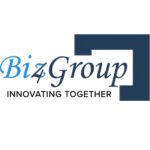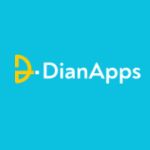
Top eLearning Software Development Companies
Welcome to our comprehensive guide to the top eLearning Software Development Companies! In today’s digital age, eLearning has become increasingly essential for education and training purposes. Our curated list features the leading companies specializing in developing innovative software solutions tailored specifically for eLearning purposes. From learning management systems (LMS) and content authoring tools to virtual classrooms and interactive simulations, these companies offer a diverse range of products and services to meet the unique needs of educators, trainers, and learners. With detailed reviews and insights, we empower you to make informed decisions and choose the best partner for your eLearning journey.
List of the Best eLearning Software Development Companies

-
Employees: 10 - 49
-
Min. Project amount: $10,000+
-
Country: NJ, United States

Biz4Group LLC
-
Employees: 50 - 249
-
Min. Project amount: $25,000+
-
Country: FL, USA

App Makers USA
-
Employees: 10 - 49
-
Min. Project amount: $10,000+
-
Country: Los Angeles, CA, United States

Tech Exactly
-
Employees: 50 - 249
-
Min. Project amount: $1,000+
-
Country: Kolkata, India

itCraft
-
Employees: 50 - 249
-
Min. Project amount: $25,000+
-
Country: Warszawa, Poland

Algoworks
-
Employees: 250 - 999
-
Min. Project amount: $10,000+
-
Country: CA, United States

Hyperlink InfoSystem
-
Employees: 1,000 - 9,999
-
Min. Project amount: $25,000+
-
Country: NJ, United States

HeyFlutter
-
Employees: 10 - 49
-
Min. Project amount: $5,000+
-
Country: Kassel, Germany

DianApps
-
Employees: 50 - 249
-
Min. Project amount: $5,000+
-
Country: CA, United States

Tech Alchemy
-
Employees: 50 - 249
-
Min. Project amount: $25,000+
-
Country: London, United Kingdom
** Buyer's Guide **
- 1. What are the key features I should look for in eLearning software solutions?
- 2. Can eLearning software solutions accommodate different types of learning content, such as videos, quizzes, interactive modules, and assessments?
- 3. How scalable are eLearning software solutions to accommodate the growth of our organization's learning initiatives?
- 4. Can eLearning software solutions provide analytics and reporting features to track learner progress and assess the effectiveness of training programs?
1.What are the key features I should look for in eLearning software solutions?
Key features to consider include learning management system (LMS) functionality, content authoring tools, assessment and tracking capabilities, multimedia support, mobile compatibility, integrations with other systems, and customizable branding options.
These are all essential features in eLearning software solutions. Here’s a breakdown of how they can benefit your training programs and what additional functionalities you might consider:
Building a Robust eLearning Experience: Key Features for eLearning Software
Choosing the right eLearning software is crucial for creating engaging and effective training programs. Here’s a closer look at the features you should prioritize:
Learning Management System (LMS) Functionality: The LMS acts as the backbone of your eLearning platform. It allows you to manage courses, enroll learners, track progress, and deliver training materials. Ensure the LMS offers user-friendly interfaces for both administrators and learners.
Content Authoring Tools: Not everyone is a professional course developer. User-friendly content authoring tools empower you to create engaging learning content without needing extensive programming knowledge. Look for features like drag-and-drop course builders, multimedia integration options, and templates to jumpstart content creation.
Assessment and Tracking Capabilities: Evaluate learner comprehension and track progress effectively. The software should offer various assessment formats (multiple-choice, quizzes, open ended) and detailed reporting to identify areas where learners might need additional support.
Multimedia Support: Move beyond text-heavy courses. The software should seamlessly integrate multimedia elements like images, videos, audio lectures, and even simulations to create a more engaging and interactive learning experience.
Mobile Compatibility: In today’s mobile world, learners expect flexibility. Ensure the eLearning software offers mobile compatibility, allowing learners to access courses and complete training on their smartphones or tablets.
Integrations with Other Systems: Seamless integrations with existing systems like HR software or learning management platforms (LMS) can streamline workflows and eliminate the need for manual data entry.
Customizable Branding Options: Extend your brand identity to your training programs. Look for software that allows you to customize the learning platform’s look and feel to match your company’s branding.
Additional Features to Consider:
Social Learning and Collaboration: Foster a sense of community and encourage peer-to-peer learning by incorporating features like discussion forums, chat rooms, or collaborative activities.
Gamification Elements: Make learning fun and engaging! Gamification features like points, badges, and leaderboards can motivate learners and boost knowledge retention.
Accessibility Tools: Ensure your training programs are inclusive for all learners. Look for software that offers accessibility features like closed captions for videos, transcripts for audio lectures, and screen reader compatibility.
Reporting and Analytics: Detailed reporting and analytics provide valuable insights into learner performance and program effectiveness. Use this data to identify areas for improvement and optimize your training programs over time.
By prioritizing these key features and considering additional functionalities that align with your specific training needs, you can select an eLearning software solution that empowers you to deliver effective, engaging, and accessible training programs for your learners.
2.Can eLearning software solutions accommodate different types of learning content, such as videos, quizzes, interactive modules, and assessments?
Yes, top eLearning software development companies offer solutions that support a variety of content formats to create engaging and interactive learning experiences. Look for platforms with flexible content creation and delivery options.
Modern eLearning software solutions are designed to accommodate a diverse range of content formats, allowing you to create rich and engaging learning experiences. Here’s how these platforms cater to different content types:
Beyond Textbooks: Unleashing the Power of Diverse eLearning Content
Gone are the days of dry, text-heavy eLearning modules. Today’s software empowers you to create dynamic and interactive learning experiences by incorporating a variety of content formats:
Multimedia Mastery: Seamlessly integrate captivating multimedia elements like images, infographics, and videos to visually represent concepts and enhance learner engagement.
Interactive Modules: Move beyond static content and incorporate interactive elements like simulations, branching scenarios, and gamified activities. These features allow learners to apply their knowledge in a simulated environment, improving knowledge retention and practical application skills.
Quizzes and Assessments: Evaluate learner comprehension and track progress through various assessment formats. Software can support traditional multiple-choice quizzes, open-ended questions, drag-and-drop activities, and even matching exercises, catering to different learning styles and assessment needs.
Document Uploads and Knowledge Sharing: Allow learners to upload relevant documents, participate in discussions, and share knowledge with peers. This fosters collaboration and creates a more dynamic learning environment.
Flexibility is Key:
WYSIWYG Editors and Drag-and-Drop Functionality: Many platforms offer user-friendly content authoring tools with WYSIWYG (What You See Is What You Get) editors and drag-and-drop functionalities. This allows you to create interactive modules and assessments even without extensive coding knowledge.
Pre-Built Templates and Asset Libraries: Jumpstart content creation with pre-designed templates and libraries of stock images, icons, and audio elements. These resources can save you time and effort while maintaining a consistent look and feel for your training programs.
Third-Party Integrations: Some eLearning software integrates with external tools like video creation platforms or assessment development software. This broadens your content creation options and allows you to leverage specialized tools for specific learning objectives.
By choosing a platform that supports a variety of content formats and offers flexible content creation tools, you can design eLearning programs that cater to diverse learning styles, keep learners engaged, and ultimately deliver effective training that achieves your desired learning outcomes.
3.How scalable are eLearning software solutions to accommodate the growth of our organization's learning initiatives?
Reputable eLearning software development companies design their solutions to be scalable, allowing organizations to expand their eLearning programs as needed. Ensure that the software provider offers plans and features that can support your organization’s current and future learning goals.
Scalability is crucial for eLearning software solutions, especially as your organization’s training needs evolve. Here’s how to ensure the chosen platform can accommodate your growing learning initiatives:
Future-Proofing Your Learning: Ensuring eLearning Software Can Scale with You
As your organization expands, your training needs will too. Here’s how to select an eLearning software solution that can grow alongside your ambitions:
Scalable User Management and Storage: Look for software that offers flexible user management options. Ensure you can easily add new learners and administrators as your organization grows. Similarly, verify that the storage capacity can accommodate your expanding course library and learner-generated content.
Tiered Subscription Plans: Many eLearning software providers offer tiered subscription plans with varying features and storage capacities. Choose a plan that caters to your current needs while considering upgrade options to accommodate future growth.
API Integrations and Third-Party Tools: A platform that integrates with other tools and learning management systems (LMS) allows you to leverage existing infrastructure and extend functionalities as needed. For example, integrating with an external assessment development tool can provide more sophisticated testing options as your training programs become more complex.
Course Reusability and Content Libraries: Design your eLearning programs with reusability in mind. Modular course structures allow you to easily create new courses by reusing existing content modules. Additionally, content libraries empower you to store reusable learning objects (images, videos, quizzes) and streamline future course development.
Communicate Your Growth Plans:
- Discuss Future Needs with Vendors: Be upfront about your organization’s growth plans when evaluating eLearning software solutions. Discuss your anticipated user base expansion and future training needs with potential vendors. Reputable providers can advise on solutions that can scale alongside your organization.
Scalability is more than just user capacity. Look for a platform that offers flexible features, integrates with external tools, and allows for course reusability. By considering these factors and openly communicating your growth plans with vendors, you can select an eLearning software solution that empowers you to deliver effective training programs now and well into the future.
4.Can eLearning software solutions provide analytics and reporting features to track learner progress and assess the effectiveness of training programs?
Yes, many eLearning software solutions include robust analytics and reporting tools that allow administrators to track learner progress, measure engagement, and evaluate the effectiveness of training content. Look for platforms that offer customizable reports and real-time insights.
Powerful analytics and reporting features are hallmarks of modern eLearning software solutions. These features empower you to track learner progress, identify areas for improvement, and ultimately measure the effectiveness of your training programs:
From Data to Decisions: Leveraging Analytics in eLearning
Effective training goes beyond creating courses and enrolling learners. The ability to measure the impact of your training programs is crucial. Here’s how eLearning software’s analytics and reporting features empower you to make data-driven decisions:
Learner Progress Tracking: Monitor individual learner progress through course completion rates, assessment scores, and module-by-module activity tracking. Identify learners who might be struggling and provide them with additional support.
Engagement Measurement: Go beyond completion rates. Analytics can track learner engagement metrics such as time spent on modules, video viewing times, and interactions with quizzes and activities. Low engagement might indicate confusing content or a need for more interactive elements.
Customizable Reports: Generate reports tailored to your specific needs. Track overall program performance, analyze learner performance by department or job role, and identify areas where your training content might require adjustments.
Real-Time Insights: Don’t wait for the end of a training program to gain insights. Many platforms offer real-time reporting dashboards, allowing you to monitor learner progress and engagement throughout the course.
Actionable Data: Use the data gleaned from analytics to make informed decisions. Revise or update content based on learner performance, identify knowledge gaps that require additional training modules, and tailor your programs to address specific departmental or role-based needs.
Additional Considerations:
xAPI Compliance: Look for software that adheres to the Experience API (xAPI) standard. This allows you to track learner interactions across different learning platforms and devices, providing a more comprehensive picture of their learning journey.
Integration with Learning Management Systems (LMS): If you use a separate LMS, ensure the eLearning software integrates with it. This allows you to consolidate learner data and reporting within your existing LMS platform.
By leveraging the analytics and reporting features offered by eLearning software solutions, you can gain valuable insights into learner behavior and training effectiveness. Use this data to optimize your training programs, ensure knowledge retention, and ultimately achieve your desired learning outcomes.



